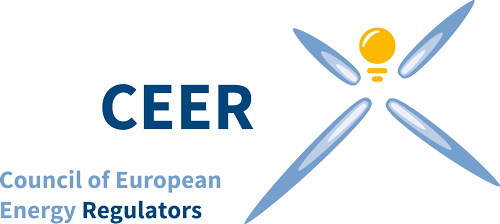March 2011
| | |
| European Energy Regulators’ News | |
| Issue: March 2011 | |
| If this e-mail is not displayed correctly, please click here! | |
|
| Editorial |
| Review of the process for drafting Framework Guidelines - lessons from the interim period | |
| A review as part of the handover from ERGEG to ACER The European Commission and the European Network for Transmission System Operators (ENTSOs) for electricity and for gas agreed to work ‘as if’ the 3rd Energy Package were in place. As the work has been done on a voluntary basis, ERGEG’s review of the process for drafting Framework Guidelines assesses whether the process followed by ERGEG is robust enough and provides a sound basis on which ACER can rely (see February Newsletter on the reasons for the handover from ERGEG to ACER). It contains a summary of the overall feedback received from regulators, the Commission and stakeholders and the resulting recommendations made to ACER. What process did ERGEG follow in preparing draft Framework Guidelines? How did we conduct the review? Recommendations Timeline Scoping/Initial Impact Assessment (IIAs) Consultation Overall picture |
| CEER/ERGEG Publications and Events |
| Publications: • CEER Evaluation of Comments of the Call for Evidence on the gas target model, (Ref: C11-GWG-74-03) • CEER contribution to the EC consultation on Energy Roadmap 2050, (Ref: C11-EWG-68-04) • CEER submission to European Commission Consultation on Alternative Dispute Resolution (ADR), (Ref: C11-RMC-46-03) • ERGEG Evaluation of Responses to the consultation on the draft Framework Guideline on CACM for electricity, (Ref: E10-ENM-20-03a) • ERGEG Review of the process for drafting framework guidelines, (Ref: C10-GA-68-04b) Events (see Events section of website for the new calendar of upcoming workshops) • 3rd CEER workshop on a target model for the future European natural gas market, 11 April 2011, London (also live webstream) • ICER (CEER) Workshop on regulatory practices for the promotion of energy efficiency, 12 April 2011 (Brussels, Sustainable Energy Week) |
| Calendar of current and future public consultations |
|
The standard period for ERGEG public consultation is 8 weeks. See the public consultations section of the website.
| Events |
| See all dates of Regional Initiatives meetings (RCC, IG, SG) on the ERGEG online Calendar. |
|
|
| Region in the Spotlight - Action Plans of South gas and South-West electicity regions |
| At the 19th European Gas Regulatory Forum held in Madrid on 21-22 March 2011 the European Commission invited the existing regions of the Gas Regional Initiative to present their work programmes for 2012-2014. It is possible that a similar proposal will be agreed for the Electricity Regional Initiative at the Electricity Regulatory Forum to be held in Florence in May. |
| About the European Energy Regulators' News |
| Reported content is given for information purposes only and does not legally bind any of the involved parties. Where third-party sources are mentioned, CEER/ERGEG is not responsible for the accuracy of the information. Your feedback on European Energy Regulators’ News is welcome, so as to improve future issues. Contact: una.shortall@ceer.eu |
